Tanaka6000
COMPOUND WORDS
5000 WORDS
chicken P0637 chic P1058 chin P1171 childrens' play area P1254 childrens' portion P1255 child P1413 chimney P3993 chick P4634 China P5389
PHRASES
No entiendo el chino.  I don't understand Chinese . (ENG ) (ES ) (0006)           | |||||||||||||||||||||||||||||||||||||||||||||||||||||||||||||||||||||||||||||||||||||||||||||||||||||||||||||||||||||||||||||
Estos niños son todos muy guapos.  These children are all very cute . (ENG ) (ES ) (0033)           | |||||||||||||||||||||||||||||||||||||||||||||||||||||||||||||||||||||||||||||||||||||||||||||||||||||||||||||||||||||||||||||
Ha ido a dibujar a las afueras.  He went sketching in the suburbs . (ENG ) (ES ) (0036)           | |||||||||||||||||||||||||||||||||||||||||||||||||||||||||||||||||||||||||||||||||||||||||||||||||||||||||||||||||||||||||||||
En China, los médicos también se llaman "daifu".  In China , doctors are also called daifu . (ENG ) (ES ) (0062)           | |||||||||||||||||||||||||||||||||||||||||||||||||||||||||||||||||||||||||||||||||||||||||||||||||||||||||||||||||||||||||||||
El niño está enfermo.  The little child is ill . (ENG ) (ES ) (0076)           | |||||||||||||||||||||||||||||||||||||||||||||||||||||||||||||||||||||||||||||||||||||||||||||||||||||||||||||||||||||||||||||
Hay cuatro niños aquí.  There are four children here . (ENG ) (ES ) (0135)           | |||||||||||||||||||||||||||||||||||||||||||||||||||||||||||||||||||||||||||||||||||||||||||||||||||||||||||||||||||||||||||||
He conseguido el primer puesto.  I have achieved first place . (ENG ) (ES ) (0144)           | |||||||||||||||||||||||||||||||||||||||||||||||||||||||||||||||||||||||||||||||||||||||||||||||||||||||||||||||||||||||||||||
Tienen dos hijos.  They have two children . (ENG ) (ES ) (0156)           | |||||||||||||||||||||||||||||||||||||||||||||||||||||||||||||||||||||||||||||||||||||||||||||||||||||||||||||||||||||||||||||
Está reparando la máquina. 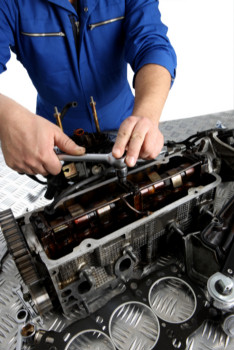 He is repairing the machine . (ENG ) (ES ) (0161)           | |||||||||||||||||||||||||||||||||||||||||||||||||||||||||||||||||||||||||||||||||||||||||||||||||||||||||||||||||||||||||||||
La República Popular China se acorta a China.  The People's Republic of China is shortened to China . (ENG ) (ES ) (0186)           | |||||||||||||||||||||||||||||||||||||||||||||||||||||||||||||||||||||||||||||||||||||||||||||||||||||||||||||||||||||||||||||
Los niños hacen cola para subir al autobús escolar.  The children line up to board the school bus . (ENG ) (ES ) (0201)           | |||||||||||||||||||||||||||||||||||||||||||||||||||||||||||||||||||||||||||||||||||||||||||||||||||||||||||||||||||||||||||||
La madre se despide de su hijo. 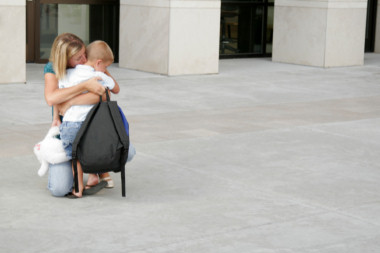 The mother is saying goodbye to her child . (ENG ) (ES ) (0213)           | |||||||||||||||||||||||||||||||||||||||||||||||||||||||||||||||||||||||||||||||||||||||||||||||||||||||||||||||||||||||||||||
Los niños confían mucho en sus padres. 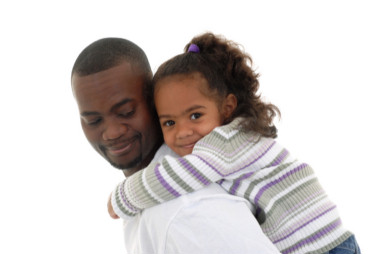 Children trust their parents very much . (ENG ) (ES ) (0218)           | |||||||||||||||||||||||||||||||||||||||||||||||||||||||||||||||||||||||||||||||||||||||||||||||||||||||||||||||||||||||||||||
Pekín es la capital de China.  Beijing is China's capital . (ENG ) (ES ) (0253)           | |||||||||||||||||||||||||||||||||||||||||||||||||||||||||||||||||||||||||||||||||||||||||||||||||||||||||||||||||||||||||||||
Conozco este carácter chino.  I know this Chinese character . (ENG ) (ES ) (0278)           | |||||||||||||||||||||||||||||||||||||||||||||||||||||||||||||||||||||||||||||||||||||||||||||||||||||||||||||||||||||||||||||
Esta chica está viva.  This chick is alive . (ENG ) (ES ) (0389)           | |||||||||||||||||||||||||||||||||||||||||||||||||||||||||||||||||||||||||||||||||||||||||||||||||||||||||||||||||||||||||||||
Tienen seis hijos en total.  They have six children altogether . (ENG ) (ES ) (0392)           | |||||||||||||||||||||||||||||||||||||||||||||||||||||||||||||||||||||||||||||||||||||||||||||||||||||||||||||||||||||||||||||
El profesor nos está enseñando matemáticas.  The teacher is teaching us math . (ENG ) (ES ) (0409)           | |||||||||||||||||||||||||||||||||||||||||||||||||||||||||||||||||||||||||||||||||||||||||||||||||||||||||||||||||||||||||||||
Comer pasteles de luna en el Día del Medio Otoño es una costumbre en China.  Eating moon cakes on Mid-Autumn Day is a custom in China . (ENG ) (ES ) (0438)           | |||||||||||||||||||||||||||||||||||||||||||||||||||||||||||||||||||||||||||||||||||||||||||||||||||||||||||||||||||||||||||||
Los niños están jugando alegremente en el parque. 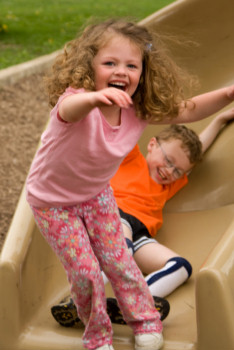 The children are playing happily in the park . (ENG ) (ES ) (0565)           | |||||||||||||||||||||||||||||||||||||||||||||||||||||||||||||||||||||||||||||||||||||||||||||||||||||||||||||||||||||||||||||
Uno de ellos está haciendo y el otro está mirando. 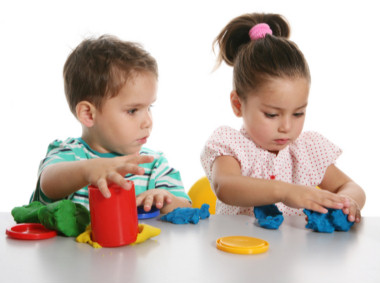 One of them is doing and the other is watching . (ENG ) (ES ) (0566)           | |||||||||||||||||||||||||||||||||||||||||||||||||||||||||||||||||||||||||||||||||||||||||||||||||||||||||||||||||||||||||||||
Hay muchos edificios antiguos en China.  There are many ancient buildings in China . (ENG ) (ES ) (0587)           | |||||||||||||||||||||||||||||||||||||||||||||||||||||||||||||||||||||||||||||||||||||||||||||||||||||||||||||||||||||||||||||
Los niños están jugando con sus juguetes. 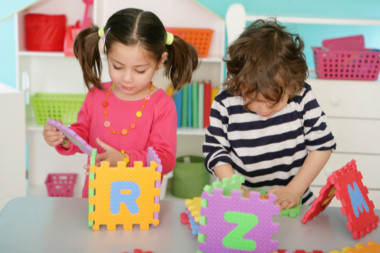 The children are playing with their toys . (ENG ) (ES ) (0659)           | |||||||||||||||||||||||||||||||||||||||||||||||||||||||||||||||||||||||||||||||||||||||||||||||||||||||||||||||||||||||||||||
La madre está jugando con sus hijos.  The mother is playing with her children . (ENG ) (ES ) (0660)           | |||||||||||||||||||||||||||||||||||||||||||||||||||||||||||||||||||||||||||||||||||||||||||||||||||||||||||||||||||||||||||||
Está practicando caligrafía china con pincel.  She is practicing Chinese brush calligraphy . (ENG ) (ES ) (0662)           | |||||||||||||||||||||||||||||||||||||||||||||||||||||||||||||||||||||||||||||||||||||||||||||||||||||||||||||||||||||||||||||
La antigua dinastía china Zhou fue varios cientos de años anterior a la dinastía Qin.  The ancient Chinese Zhou dynasty was several hundred years earlier than the Qin dynasty . (ENG ) (ES ) (0681)           | |||||||||||||||||||||||||||||||||||||||||||||||||||||||||||||||||||||||||||||||||||||||||||||||||||||||||||||||||||||||||||||
Los billetes de tren se pueden comprar en la máquina expendedora automática.  Train tickets may be purchased using the automatic vending machine . (ENG ) (ES ) (0695)           | |||||||||||||||||||||||||||||||||||||||||||||||||||||||||||||||||||||||||||||||||||||||||||||||||||||||||||||||||||||||||||||
Está reparando la máquina.  He is repairing the machine . (ENG ) (ES ) (0751)           | |||||||||||||||||||||||||||||||||||||||||||||||||||||||||||||||||||||||||||||||||||||||||||||||||||||||||||||||||||||||||||||
Los niños se reunieron para plantar el árbol. 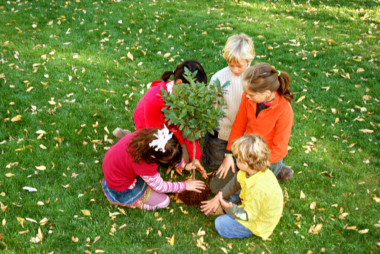 The little children gathered round to plant the tree . (ENG ) (ES ) (0754)           | |||||||||||||||||||||||||||||||||||||||||||||||||||||||||||||||||||||||||||||||||||||||||||||||||||||||||||||||||||||||||||||
¿Qué está haciendo ese niño pequeño?  What is that small child doing ? (ENG ) (ES ) (0795)           | |||||||||||||||||||||||||||||||||||||||||||||||||||||||||||||||||||||||||||||||||||||||||||||||||||||||||||||||||||||||||||||
La afición a los juegos está en la naturaleza de los niños.  A fondness for playing games is in the nature of children . (ENG ) (ES ) (0806)           | |||||||||||||||||||||||||||||||||||||||||||||||||||||||||||||||||||||||||||||||||||||||||||||||||||||||||||||||||||||||||||||
Sabe hacer Wushu chino.  She can do Chinese Wushu . (ENG ) (ES ) (0861)           | |||||||||||||||||||||||||||||||||||||||||||||||||||||||||||||||||||||||||||||||||||||||||||||||||||||||||||||||||||||||||||||
La lengua oficial de China es el idioma Han (chino).  The official language of China is the Han language (Chinese) . (ENG ) (ES ) (0882)           | |||||||||||||||||||||||||||||||||||||||||||||||||||||||||||||||||||||||||||||||||||||||||||||||||||||||||||||||||||||||||||||
¿Qué significa este carácter chino?  What does this Chinese character mean ? (ENG ) (ES ) (0939)           | |||||||||||||||||||||||||||||||||||||||||||||||||||||||||||||||||||||||||||||||||||||||||||||||||||||||||||||||||||||||||||||
Han criado a tres hijos.  They have raised three children . (ENG ) (ES ) (0942)           | |||||||||||||||||||||||||||||||||||||||||||||||||||||||||||||||||||||||||||||||||||||||||||||||||||||||||||||||||||||||||||||
Los ejercicios de Tai Chi son apropiados para las personas mayores.  Tai Chi exercises are appropriate for the elderly . (ENG ) (ES ) (1009)           | |||||||||||||||||||||||||||||||||||||||||||||||||||||||||||||||||||||||||||||||||||||||||||||||||||||||||||||||||||||||||||||
Hong Kong forma parte del territorio de China.  Hong Kong is a part of the territory of China . (ENG ) (ES ) (1050)           | |||||||||||||||||||||||||||||||||||||||||||||||||||||||||||||||||||||||||||||||||||||||||||||||||||||||||||||||||||||||||||||
Aspiraba a ser arquitecta.  She aspires to become an architect . (ENG ) (ES ) (1065)           | |||||||||||||||||||||||||||||||||||||||||||||||||||||||||||||||||||||||||||||||||||||||||||||||||||||||||||||||||||||||||||||
El deber de los hijos es cuidar de sus padres.  It is the duty of children to care for their parents . (ENG ) (ES ) (1091)           | |||||||||||||||||||||||||||||||||||||||||||||||||||||||||||||||||||||||||||||||||||||||||||||||||||||||||||||||||||||||||||||
Sus hijos no estaban con él en su lecho de muerte. 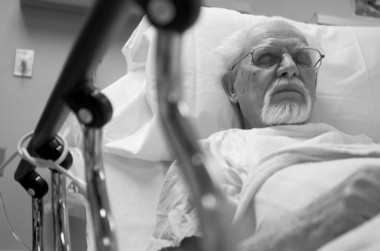 His children were not with him at his deathbed . (ENG ) (ES ) (1104)           | |||||||||||||||||||||||||||||||||||||||||||||||||||||||||||||||||||||||||||||||||||||||||||||||||||||||||||||||||||||||||||||
A la mayoría de los chinos les encanta comer baozi.  Most Chinese love to eat baozi . (ENG ) (ES ) (1144)           | |||||||||||||||||||||||||||||||||||||||||||||||||||||||||||||||||||||||||||||||||||||||||||||||||||||||||||||||||||||||||||||
Los niños están jugando en la hierba.  The children are playing on the grass . (ENG ) (ES ) (1162)           | |||||||||||||||||||||||||||||||||||||||||||||||||||||||||||||||||||||||||||||||||||||||||||||||||||||||||||||||||||||||||||||
Están viendo una serie de televisión.  They are watching a TV drama . (ENG ) (ES ) (1181)           | |||||||||||||||||||||||||||||||||||||||||||||||||||||||||||||||||||||||||||||||||||||||||||||||||||||||||||||||||||||||||||||
El profesor dio una lección a los niños.  The teacher taught the children one lesson . (ENG ) (ES ) (1187)           | |||||||||||||||||||||||||||||||||||||||||||||||||||||||||||||||||||||||||||||||||||||||||||||||||||||||||||||||||||||||||||||
Los niños son los tesoros de sus madres.  Children are their mothers' treasures . (ENG ) (ES ) (1212)           | |||||||||||||||||||||||||||||||||||||||||||||||||||||||||||||||||||||||||||||||||||||||||||||||||||||||||||||||||||||||||||||
Los niños se persiguen en el prado. 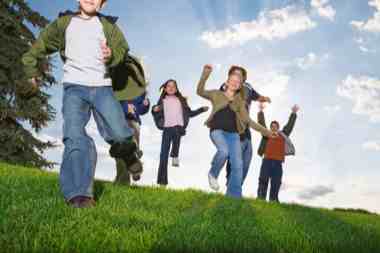 The children are chasing each other in the meadow . (ENG ) (ES ) (1307)           | |||||||||||||||||||||||||||||||||||||||||||||||||||||||||||||||||||||||||||||||||||||||||||||||||||||||||||||||||||||||||||||
A todos los niños les encanta ver un espectáculo de circo.  All children love watching a circus performance . (ENG ) (ES ) (1313)           | |||||||||||||||||||||||||||||||||||||||||||||||||||||||||||||||||||||||||||||||||||||||||||||||||||||||||||||||||||||||||||||
Hay 1.300 millones de personas en China.  There are 1 0.3 billion people in China . (ENG ) (ES ) (1322)           | |||||||||||||||||||||||||||||||||||||||||||||||||||||||||||||||||||||||||||||||||||||||||||||||||||||||||||||||||||||||||||||
El pueblo chino practica la costumbre de adorar a los antepasados.  The Chinese people practice the custom of ancestor worship . (ENG ) (ES ) (1352)           | |||||||||||||||||||||||||||||||||||||||||||||||||||||||||||||||||||||||||||||||||||||||||||||||||||||||||||||||||||||||||||||
Está arañando al perrito. 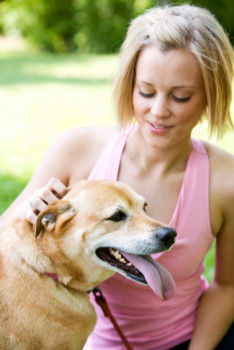 She is scratching the little dog . (ENG ) (ES ) (1358)           | |||||||||||||||||||||||||||||||||||||||||||||||||||||||||||||||||||||||||||||||||||||||||||||||||||||||||||||||||||||||||||||
Hong Kong ya ha vuelto a China.  Hong Kong has already reverted to China . (ENG ) (ES ) (1373)           | |||||||||||||||||||||||||||||||||||||||||||||||||||||||||||||||||||||||||||||||||||||||||||||||||||||||||||||||||||||||||||||
Hay muchas montañas y ríos hermosos en China.  There are many beautiful mountains and rivers in China . (ENG ) (ES ) (1397)           | |||||||||||||||||||||||||||||||||||||||||||||||||||||||||||||||||||||||||||||||||||||||||||||||||||||||||||||||||||||||||||||
Churchill fue primer ministro del Reino Unido.  Churchill was prime minister of the UK . (ENG ) (ES ) (1435)           | |||||||||||||||||||||||||||||||||||||||||||||||||||||||||||||||||||||||||||||||||||||||||||||||||||||||||||||||||||||||||||||
Los niños juegan con los juguetes de los niños .  The kids are playing with children's toys . (ENG ) (ES ) (1498)           | |||||||||||||||||||||||||||||||||||||||||||||||||||||||||||||||||||||||||||||||||||||||||||||||||||||||||||||||||||||||||||||
La madre está contando cuentos a su hijo.  The mother is telling fairy tales to her child . (ENG ) (ES ) (1499)           | |||||||||||||||||||||||||||||||||||||||||||||||||||||||||||||||||||||||||||||||||||||||||||||||||||||||||||||||||||||||||||||
Me encanta comer pollo frito.  I love eating fried chicken . (ENG ) (ES ) (1507)           | |||||||||||||||||||||||||||||||||||||||||||||||||||||||||||||||||||||||||||||||||||||||||||||||||||||||||||||||||||||||||||||
El profesor nos está enseñando algunas palabras nuevas.  The teacher is teaching us some new words . (ENG ) (ES ) (1512)           | |||||||||||||||||||||||||||||||||||||||||||||||||||||||||||||||||||||||||||||||||||||||||||||||||||||||||||||||||||||||||||||
Ella está promocionando productos a los clientes.  She is pitching products to customers . (ENG ) (ES ) (1531)           | |||||||||||||||||||||||||||||||||||||||||||||||||||||||||||||||||||||||||||||||||||||||||||||||||||||||||||||||||||||||||||||
La policía busca a un delincuente fugado.  The police are searching for an escaped criminal . (ENG ) (ES ) (1536)           | |||||||||||||||||||||||||||||||||||||||||||||||||||||||||||||||||||||||||||||||||||||||||||||||||||||||||||||||||||||||||||||
El niño se lleva helado a la boca.  The child puts ice cream in his mouth . (ENG ) (ES ) (1547)           | |||||||||||||||||||||||||||||||||||||||||||||||||||||||||||||||||||||||||||||||||||||||||||||||||||||||||||||||||||||||||||||
La máquina funciona de forma estable.  The machine is running stably . (ENG ) (ES ) (1599)           | |||||||||||||||||||||||||||||||||||||||||||||||||||||||||||||||||||||||||||||||||||||||||||||||||||||||||||||||||||||||||||||
Las máquinas pueden hacer el trabajo de los humanos.  Machines can do the work of humans . (ENG ) (ES ) (1604)           | |||||||||||||||||||||||||||||||||||||||||||||||||||||||||||||||||||||||||||||||||||||||||||||||||||||||||||||||||||||||||||||
El Tíbet está en el suroeste de China.  Tibet is in the southwest of China . (ENG ) (ES ) (1612)           | |||||||||||||||||||||||||||||||||||||||||||||||||||||||||||||||||||||||||||||||||||||||||||||||||||||||||||||||||||||||||||||
Los niños crecen sanos.  The children are growing up healthy . (ENG ) (ES ) (1638)           | |||||||||||||||||||||||||||||||||||||||||||||||||||||||||||||||||||||||||||||||||||||||||||||||||||||||||||||||||||||||||||||
China y Estados Unidos han establecido una relación diplomática.  China and the U .S . have established a diplomatic relationship . (ENG ) (ES ) (1643)           | |||||||||||||||||||||||||||||||||||||||||||||||||||||||||||||||||||||||||||||||||||||||||||||||||||||||||||||||||||||||||||||
El barrio chino es muy animado.  Chinatown is bustling . (ENG ) (ES ) (1654)           | |||||||||||||||||||||||||||||||||||||||||||||||||||||||||||||||||||||||||||||||||||||||||||||||||||||||||||||||||||||||||||||
El "甲" chino (jia) es análogo a "A" en español.  Chinese 甲 (jia) is analogous to A in English . (ENG ) (ES ) (1680)           | |||||||||||||||||||||||||||||||||||||||||||||||||||||||||||||||||||||||||||||||||||||||||||||||||||||||||||||||||||||||||||||
La economía de China se está desarrollando rápidamente.  China's economy is developing rapidly . (ENG ) (ES ) (1691)           | |||||||||||||||||||||||||||||||||||||||||||||||||||||||||||||||||||||||||||||||||||||||||||||||||||||||||||||||||||||||||||||
El profesor está dando una clase. 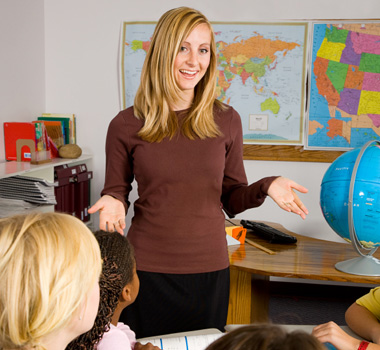 The teacher is teaching a class . (ENG ) (ES ) (1694)           | |||||||||||||||||||||||||||||||||||||||||||||||||||||||||||||||||||||||||||||||||||||||||||||||||||||||||||||||||||||||||||||
No mimes al niño.  Don't spoil the child . (ENG ) (ES ) (1701)           | |||||||||||||||||||||||||||||||||||||||||||||||||||||||||||||||||||||||||||||||||||||||||||||||||||||||||||||||||||||||||||||
Los chinos comen tradicionalmente "jiaozi" (albóndigas) en el Año Nuevo chino.  Chinese traditionally eat jiaozi (dumplings) at the Chinese New Year . (ENG ) (ES ) (1714)           | |||||||||||||||||||||||||||||||||||||||||||||||||||||||||||||||||||||||||||||||||||||||||||||||||||||||||||||||||||||||||||||
Estos son los caracteres chinos tradicionales.  These are traditional Chinese characters . (ENG ) (ES ) (1716)           | |||||||||||||||||||||||||||||||||||||||||||||||||||||||||||||||||||||||||||||||||||||||||||||||||||||||||||||||||||||||||||||
La madre está desarrollando el interés de su hijo por la música.  The mother fosters her child's interest in music . (ENG ) (ES ) (1724)           | |||||||||||||||||||||||||||||||||||||||||||||||||||||||||||||||||||||||||||||||||||||||||||||||||||||||||||||||||||||||||||||
El niño se ha graduado y sus padres están contentos.  The child has graduated , and his parents are pleased . (ENG ) (ES ) (1738)           | |||||||||||||||||||||||||||||||||||||||||||||||||||||||||||||||||||||||||||||||||||||||||||||||||||||||||||||||||||||||||||||
Ver los partidos de fútbol es emocionante.  Watching football games is thrilling . (ENG ) (ES ) (1744)           | |||||||||||||||||||||||||||||||||||||||||||||||||||||||||||||||||||||||||||||||||||||||||||||||||||||||||||||||||||||||||||||
Sus hijos le han abandonado.  He has been deserted by his children . (ENG ) (ES ) (1761)           | |||||||||||||||||||||||||||||||||||||||||||||||||||||||||||||||||||||||||||||||||||||||||||||||||||||||||||||||||||||||||||||
Está examinando el chip de silicona.  He is examining the silicon chip . (ENG ) (ES ) (1796)           | |||||||||||||||||||||||||||||||||||||||||||||||||||||||||||||||||||||||||||||||||||||||||||||||||||||||||||||||||||||||||||||
La máquina de hilar está haciendo hilo.  The spinning machine is making thread . (ENG ) (ES ) (1833)           | |||||||||||||||||||||||||||||||||||||||||||||||||||||||||||||||||||||||||||||||||||||||||||||||||||||||||||||||||||||||||||||
Mongolia está al norte de China. 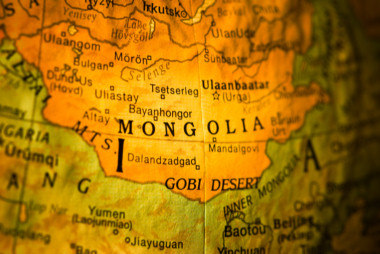 Mongolia is north of China . (ENG ) (ES ) (1845)           | |||||||||||||||||||||||||||||||||||||||||||||||||||||||||||||||||||||||||||||||||||||||||||||||||||||||||||||||||||||||||||||
Se puede sacar dinero de un cajero automático con una tarjeta.  One can withdraw cash from an ATM machine using a card . (ENG ) (ES ) (1855)           | |||||||||||||||||||||||||||||||||||||||||||||||||||||||||||||||||||||||||||||||||||||||||||||||||||||||||||||||||||||||||||||
La chimenea echa humo.  The chimney is giving off smoke . (ENG ) (ES ) (1877)           | |||||||||||||||||||||||||||||||||||||||||||||||||||||||||||||||||||||||||||||||||||||||||||||||||||||||||||||||||||||||||||||
El niño se ha disfrazado de fantasma.  The child is dressed up as a ghost . (ENG ) (ES ) (1915)           | |||||||||||||||||||||||||||||||||||||||||||||||||||||||||||||||||||||||||||||||||||||||||||||||||||||||||||||||||||||||||||||
Los niños están recibiendo su educación formativa.  The children are receiving their formative education . (ENG ) (ES ) (1936)           | |||||||||||||||||||||||||||||||||||||||||||||||||||||||||||||||||||||||||||||||||||||||||||||||||||||||||||||||||||||||||||||
Los juegos pueden ayudar a desarrollar la inteligencia de los niños.  Games can help childrens' intelligence develop . (ENG ) (ES ) (1940)           | |||||||||||||||||||||||||||||||||||||||||||||||||||||||||||||||||||||||||||||||||||||||||||||||||||||||||||||||||||||||||||||
No es conveniente discutir delante de los niños. 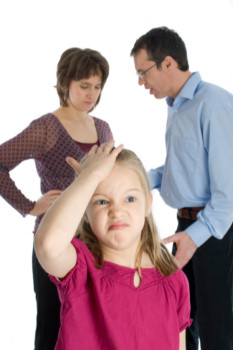 It is unwise to argue in front of the children . (ENG ) (ES ) (1941)           | |||||||||||||||||||||||||||||||||||||||||||||||||||||||||||||||||||||||||||||||||||||||||||||||||||||||||||||||||||||||||||||
La madre está tocando suavemente su cabeza.  The mother is gently touching her head . (ENG ) (ES ) (1968)           | |||||||||||||||||||||||||||||||||||||||||||||||||||||||||||||||||||||||||||||||||||||||||||||||||||||||||||||||||||||||||||||
El pollo está un poco quemado.  The chicken is a bit burned . (ENG ) (ES ) (2029)           | |||||||||||||||||||||||||||||||||||||||||||||||||||||||||||||||||||||||||||||||||||||||||||||||||||||||||||||||||||||||||||||
Es paciente con los niños.  She is patient with the children . (ENG ) (ES ) (2040)           | |||||||||||||||||||||||||||||||||||||||||||||||||||||||||||||||||||||||||||||||||||||||||||||||||||||||||||||||||||||||||||||
Este es el Salón Conmemorativo de Chiang Kai-shek.  This is the Chiang Kai-shek Memorial Hall . (ENG ) (ES ) (2072)           | |||||||||||||||||||||||||||||||||||||||||||||||||||||||||||||||||||||||||||||||||||||||||||||||||||||||||||||||||||||||||||||
Es un excelente arquitecto.  He is an outstanding architect . (ENG ) (ES ) (2080)           | |||||||||||||||||||||||||||||||||||||||||||||||||||||||||||||||||||||||||||||||||||||||||||||||||||||||||||||||||||||||||||||
Apoya su barbilla en las manos.  She is resting her chin in her hands . (ENG ) (ES ) (2139)           | |||||||||||||||||||||||||||||||||||||||||||||||||||||||||||||||||||||||||||||||||||||||||||||||||||||||||||||||||||||||||||||
Los chinos llaman a su padre y a su madre "Diē" y "Niáng".  The Chinese call their father and mother Diē and Niáng . (ENG ) (ES ) (2147)           | |||||||||||||||||||||||||||||||||||||||||||||||||||||||||||||||||||||||||||||||||||||||||||||||||||||||||||||||||||||||||||||
El deporte de los botes de dragón se originó en China.  The dragon boat sport originated in China . (ENG ) (ES ) (2164)           | |||||||||||||||||||||||||||||||||||||||||||||||||||||||||||||||||||||||||||||||||||||||||||||||||||||||||||||||||||||||||||||
Estoy cuidando el equipaje de mi padre.  I am watching the luggage for my father . (ENG ) (ES ) (2173)           | |||||||||||||||||||||||||||||||||||||||||||||||||||||||||||||||||||||||||||||||||||||||||||||||||||||||||||||||||||||||||||||
Mi tío me está enseñando a nadar.  My uncle is teaching me to swim . (ENG ) (ES ) (2175)           | |||||||||||||||||||||||||||||||||||||||||||||||||||||||||||||||||||||||||||||||||||||||||||||||||||||||||||||||||||||||||||||
El niño se apoya en la barandilla. 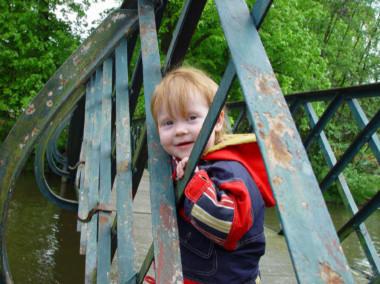 The child leans against the railing . ((The child leans on the railing .)) (ENG ) (ES ) (2187)           | |||||||||||||||||||||||||||||||||||||||||||||||||||||||||||||||||||||||||||||||||||||||||||||||||||||||||||||||||||||||||||||
La madre está consolando al niño. 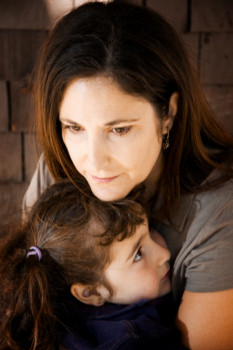 The mother is consoling the child . (ENG ) (ES ) (2207)           | |||||||||||||||||||||||||||||||||||||||||||||||||||||||||||||||||||||||||||||||||||||||||||||||||||||||||||||||||||||||||||||
Me gusta ver espectáculos de marionetas.  I like watching puppet shows . (ENG ) (ES ) (2226)           | |||||||||||||||||||||||||||||||||||||||||||||||||||||||||||||||||||||||||||||||||||||||||||||||||||||||||||||||||||||||||||||
A los niños les encanta la sandía.  Children love watermelon . (ENG ) (ES ) (2250)           | |||||||||||||||||||||||||||||||||||||||||||||||||||||||||||||||||||||||||||||||||||||||||||||||||||||||||||||||||||||||||||||
El niño se está abriendo paso a través de la tubería de hormigón. 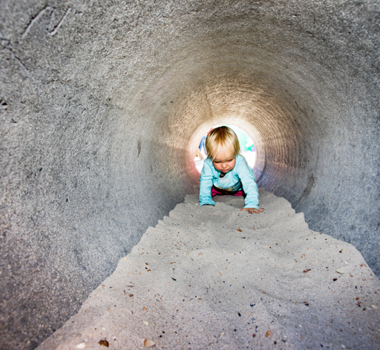 The child is making his way through the concrete pipe . (ENG ) (ES ) (2255)           | |||||||||||||||||||||||||||||||||||||||||||||||||||||||||||||||||||||||||||||||||||||||||||||||||||||||||||||||||||||||||||||
Los soldados avanzan al paso.  The soldiers are marching forward in step . (ENG ) (ES ) (2271)           | |||||||||||||||||||||||||||||||||||||||||||||||||||||||||||||||||||||||||||||||||||||||||||||||||||||||||||||||||||||||||||||
Los niños son muy dependientes de sus padres.  Children are very dependent on their parents . (ENG ) (ES ) (2324)           | |||||||||||||||||||||||||||||||||||||||||||||||||||||||||||||||||||||||||||||||||||||||||||||||||||||||||||||||||||||||||||||
A todos los niños les gusta ver trucos de magia.  All children love watching magic tricks . (ENG ) (ES ) (2366)           | |||||||||||||||||||||||||||||||||||||||||||||||||||||||||||||||||||||||||||||||||||||||||||||||||||||||||||||||||||||||||||||
Los creyentes siguen las enseñanzas del sacerdote.  The believers follow the priest’s teachings . (ENG ) (ES ) (2418)           | |||||||||||||||||||||||||||||||||||||||||||||||||||||||||||||||||||||||||||||||||||||||||||||||||||||||||||||||||||||||||||||
La madre está preocupada por la salud de su hijo.  The mother is worried about her child's health . (ENG ) (ES ) (2442)           | |||||||||||||||||||||||||||||||||||||||||||||||||||||||||||||||||||||||||||||||||||||||||||||||||||||||||||||||||||||||||||||
Todos los padres quieren a sus hijos.  All parents love their children . (ENG ) (ES ) (2452)           | |||||||||||||||||||||||||||||||||||||||||||||||||||||||||||||||||||||||||||||||||||||||||||||||||||||||||||||||||||||||||||||
La comida china debe comerse caliente.  Chinese food should be eaten hot . (ENG ) (ES ) (2465)           | |||||||||||||||||||||||||||||||||||||||||||||||||||||||||||||||||||||||||||||||||||||||||||||||||||||||||||||||||||||||||||||
La máquina está cavando la tierra. 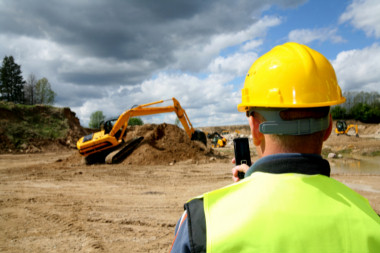 The machine is digging the soil . (ENG ) (ES ) (2486)           | |||||||||||||||||||||||||||||||||||||||||||||||||||||||||||||||||||||||||||||||||||||||||||||||||||||||||||||||||||||||||||||
No se debe obligar a los niños a estudiar.  Children shouldn't be forced to study . (ENG ) (ES ) (2497)           | |||||||||||||||||||||||||||||||||||||||||||||||||||||||||||||||||||||||||||||||||||||||||||||||||||||||||||||||||||||||||||||
Se acerca el atardecer.  Dusk is approaching . (ENG ) (ES ) (2498)           | |||||||||||||||||||||||||||||||||||||||||||||||||||||||||||||||||||||||||||||||||||||||||||||||||||||||||||||||||||||||||||||
A mi hijo le encantan los pollitos.  My son loves little chicks . (ENG ) (ES ) (2504)           | |||||||||||||||||||||||||||||||||||||||||||||||||||||||||||||||||||||||||||||||||||||||||||||||||||||||||||||||||||||||||||||
Esta es una piscina para niños.  This is the children's pool . (ENG ) (ES ) (2510)           | |||||||||||||||||||||||||||||||||||||||||||||||||||||||||||||||||||||||||||||||||||||||||||||||||||||||||||||||||||||||||||||
Estos son sus bisnietos.  These are his great-grandchildren . (ENG ) (ES ) (2535)           | |||||||||||||||||||||||||||||||||||||||||||||||||||||||||||||||||||||||||||||||||||||||||||||||||||||||||||||||||||||||||||||
El niño está llorando.  The child is crying . (ENG ) (ES ) (2538)           | |||||||||||||||||||||||||||||||||||||||||||||||||||||||||||||||||||||||||||||||||||||||||||||||||||||||||||||||||||||||||||||
La máquina está regando los campos.  The machine is watering the fields . (ENG ) (ES ) (2551)           | |||||||||||||||||||||||||||||||||||||||||||||||||||||||||||||||||||||||||||||||||||||||||||||||||||||||||||||||||||||||||||||
El investigador está investigando las bacterias.  The researcher is researching bacteria . (ENG ) (ES ) (2585)           | |||||||||||||||||||||||||||||||||||||||||||||||||||||||||||||||||||||||||||||||||||||||||||||||||||||||||||||||||||||||||||||
En China, los fuegos artificiales se lanzan en Nochevieja.  In China , fireworks will be set off on New Year's Eve . (ENG ) (ES ) (2595)           | |||||||||||||||||||||||||||||||||||||||||||||||||||||||||||||||||||||||||||||||||||||||||||||||||||||||||||||||||||||||||||||
Este niño es muy travieso.  This child is very naughty . (ENG ) (ES ) (2630)           | |||||||||||||||||||||||||||||||||||||||||||||||||||||||||||||||||||||||||||||||||||||||||||||||||||||||||||||||||||||||||||||
El niño mostró una expresión de hostilidad.  The child showed an expression of hostility . (ENG ) (ES ) (2639)           | |||||||||||||||||||||||||||||||||||||||||||||||||||||||||||||||||||||||||||||||||||||||||||||||||||||||||||||||||||||||||||||
Este es un templo chino.  This is a Chinese temple . (ENG ) (ES ) (2648)           | |||||||||||||||||||||||||||||||||||||||||||||||||||||||||||||||||||||||||||||||||||||||||||||||||||||||||||||||||||||||||||||
Aquí se guardan muchos archivos.  A lot of archives are kept here . (ENG ) (ES ) (2677)           | |||||||||||||||||||||||||||||||||||||||||||||||||||||||||||||||||||||||||||||||||||||||||||||||||||||||||||||||||||||||||||||
Antes de su regreso a China, Hong Kong era una colonia del Reino Unido.  Before its return to China , Hong Kong was a colony of the UK . (ENG ) (ES ) (2692)           | |||||||||||||||||||||||||||||||||||||||||||||||||||||||||||||||||||||||||||||||||||||||||||||||||||||||||||||||||||||||||||||
Los chiles rojos son muy picantes.  Red chili peppers are very hot . (ENG ) (ES ) (2700)           | |||||||||||||||||||||||||||||||||||||||||||||||||||||||||||||||||||||||||||||||||||||||||||||||||||||||||||||||||||||||||||||
El niño está aprendiendo a patinar sobre hielo. 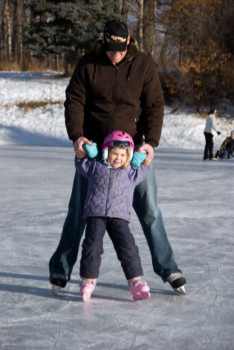 The child is learning how to ice skate . (ENG ) (ES ) (2713)           | |||||||||||||||||||||||||||||||||||||||||||||||||||||||||||||||||||||||||||||||||||||||||||||||||||||||||||||||||||||||||||||
Es una china de ultramar.  She is an overseas Chinese . (ENG ) (ES ) (2746)           | |||||||||||||||||||||||||||||||||||||||||||||||||||||||||||||||||||||||||||||||||||||||||||||||||||||||||||||||||||||||||||||
Los niños deben honrar a sus padres.  Children should show respect to their parents . (ENG ) (ES ) (2768)           | |||||||||||||||||||||||||||||||||||||||||||||||||||||||||||||||||||||||||||||||||||||||||||||||||||||||||||||||||||||||||||||
Hay una estatua del Mariscal (comandante en jefe) en la plaza. 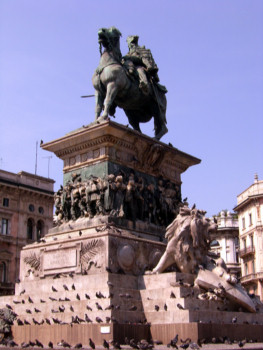 There is a statue of the Marshal (commander-in-chief) in the square . (ENG ) (ES ) (2778)           | |||||||||||||||||||||||||||||||||||||||||||||||||||||||||||||||||||||||||||||||||||||||||||||||||||||||||||||||||||||||||||||
Los niños están jugando en el parque.  The children are playing in the park . (ENG ) (ES ) (2782)           | |||||||||||||||||||||||||||||||||||||||||||||||||||||||||||||||||||||||||||||||||||||||||||||||||||||||||||||||||||||||||||||
Shenzhen fue la primera Zona Económica Especial de China.  Shenzhen was the first Special Economic Zone in China . (ENG ) (ES ) (2808)           | |||||||||||||||||||||||||||||||||||||||||||||||||||||||||||||||||||||||||||||||||||||||||||||||||||||||||||||||||||||||||||||
Abusa de los niños.  He abuses children . (ENG ) (ES ) (2811)           | |||||||||||||||||||||||||||||||||||||||||||||||||||||||||||||||||||||||||||||||||||||||||||||||||||||||||||||||||||||||||||||
A los niños les gusta ver actuar a los payasos.  Children like to watch clowns performing . (ENG ) (ES ) (2815)           | |||||||||||||||||||||||||||||||||||||||||||||||||||||||||||||||||||||||||||||||||||||||||||||||||||||||||||||||||||||||||||||
Este es el antiguo campus de la Universidad de Yenching.  This is the old campus of Yenching University . (ENG ) (ES ) (2845)           | |||||||||||||||||||||||||||||||||||||||||||||||||||||||||||||||||||||||||||||||||||||||||||||||||||||||||||||||||||||||||||||
Los niños se reunieron para jugar. 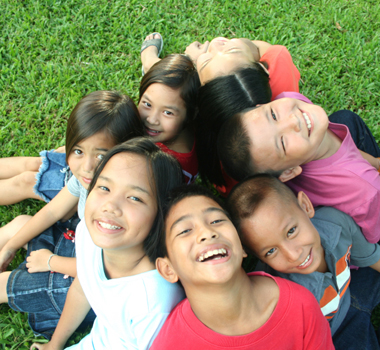 The children get together to play . (ENG ) (ES ) (2852)           | |||||||||||||||||||||||||||||||||||||||||||||||||||||||||||||||||||||||||||||||||||||||||||||||||||||||||||||||||||||||||||||
El pajarito está piando en la rama. 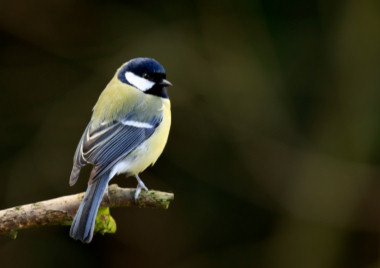 The little bird is chirping on the branch . (ENG ) (ES ) (2862)           | |||||||||||||||||||||||||||||||||||||||||||||||||||||||||||||||||||||||||||||||||||||||||||||||||||||||||||||||||||||||||||||
Le pica un poco la frente.  Her forehead is itching a bit . (ENG ) (ES ) (2869)           | |||||||||||||||||||||||||||||||||||||||||||||||||||||||||||||||||||||||||||||||||||||||||||||||||||||||||||||||||||||||||||||
Luoyang es una ciudad antigua en China.  Luoyang is an ancient city in China . (ENG ) (ES ) (2884)           | |||||||||||||||||||||||||||||||||||||||||||||||||||||||||||||||||||||||||||||||||||||||||||||||||||||||||||||||||||||||||||||
Criar a los niños es responsabilidad de los padres.  Raising children is the responsibility of parents . (ENG ) (ES ) (2893)           | |||||||||||||||||||||||||||||||||||||||||||||||||||||||||||||||||||||||||||||||||||||||||||||||||||||||||||||||||||||||||||||
En la antigua China, la orden del emperador era un decreto.  In ancient China , the emperor's order was a decree . (ENG ) (ES ) (2956)           | |||||||||||||||||||||||||||||||||||||||||||||||||||||||||||||||||||||||||||||||||||||||||||||||||||||||||||||||||||||||||||||
Esta es una berlina de novia china como se usaba antiguamente.  This is a Chinese bridal sedan as used in former times . (ENG ) (ES ) (2981)           | |||||||||||||||||||||||||||||||||||||||||||||||||||||||||||||||||||||||||||||||||||||||||||||||||||||||||||||||||||||||||||||
A los niños les encanta nadar.  Children love to swim . (ENG ) (ES ) (2992)           | |||||||||||||||||||||||||||||||||||||||||||||||||||||||||||||||||||||||||||||||||||||||||||||||||||||||||||||||||||||||||||||
Han conseguido resultados extraordinarios.  They have achieved outstanding results . (ENG ) (ES ) (3062)           | |||||||||||||||||||||||||||||||||||||||||||||||||||||||||||||||||||||||||||||||||||||||||||||||||||||||||||||||||||||||||||||
El padre le dice a su hijo que tenga cuidado.  The father tells his child to be careful . (ENG ) (ES ) (3072)           | |||||||||||||||||||||||||||||||||||||||||||||||||||||||||||||||||||||||||||||||||||||||||||||||||||||||||||||||||||||||||||||
El pollo asado huele muy bien.  The roast chicken smells very nice . (ENG ) (ES ) (3073)           | |||||||||||||||||||||||||||||||||||||||||||||||||||||||||||||||||||||||||||||||||||||||||||||||||||||||||||||||||||||||||||||
La ópera de Pekín es la quintaesencia de la cultura china.  Beijing opera is the quintessence of Chinese culture . (ENG ) (ES ) (3090)           | |||||||||||||||||||||||||||||||||||||||||||||||||||||||||||||||||||||||||||||||||||||||||||||||||||||||||||||||||||||||||||||
La madre le está contando cuentos a su hijo.  The mother is telling fairy tales to her child . (ENG ) (ES ) (3106)           | |||||||||||||||||||||||||||||||||||||||||||||||||||||||||||||||||||||||||||||||||||||||||||||||||||||||||||||||||||||||||||||
Churchill es un nombre muy conocido en el Reino Unido.  Churchill is a household name in the UK . (ENG ) (ES ) (3117)           | |||||||||||||||||||||||||||||||||||||||||||||||||||||||||||||||||||||||||||||||||||||||||||||||||||||||||||||||||||||||||||||
Es una china americana (o una americana de ascendencia china).  She is a Chinese American (or an American of Chinese ancestry) . (ENG ) (ES ) (3122)           | |||||||||||||||||||||||||||||||||||||||||||||||||||||||||||||||||||||||||||||||||||||||||||||||||||||||||||||||||||||||||||||
Los niños son protegidos por sus padres.  Children are protected by their parents . (ENG ) (ES ) (3132)           | |||||||||||||||||||||||||||||||||||||||||||||||||||||||||||||||||||||||||||||||||||||||||||||||||||||||||||||||||||||||||||||
China está creciendo. 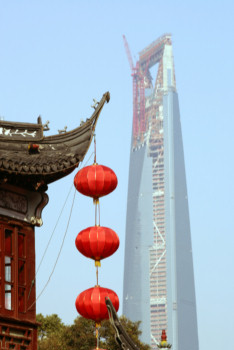 China is rising . (ENG ) (ES ) (3142)           | |||||||||||||||||||||||||||||||||||||||||||||||||||||||||||||||||||||||||||||||||||||||||||||||||||||||||||||||||||||||||||||
Está entregando el jefe del ejecutivo es informe sobre los asuntos de estado. 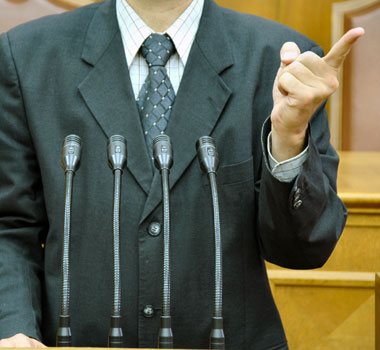 He is delivering the chief executive is report on affairs of state . (ENG ) (ES ) (3190)           | |||||||||||||||||||||||||||||||||||||||||||||||||||||||||||||||||||||||||||||||||||||||||||||||||||||||||||||||||||||||||||||
Ella está seleccionando la vajilla.  She is selecting chinaware . (ENG ) (ES ) (3193)           | |||||||||||||||||||||||||||||||||||||||||||||||||||||||||||||||||||||||||||||||||||||||||||||||||||||||||||||||||||||||||||||
La madre está amamantando a su hijo. 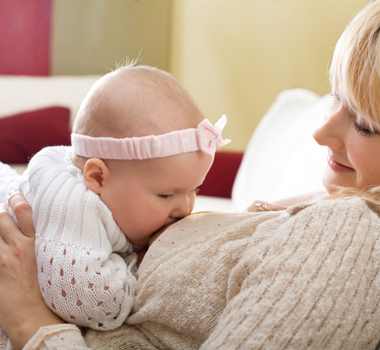 The mom is breastfeeding her child . (ENG ) (ES ) (3211)           | |||||||||||||||||||||||||||||||||||||||||||||||||||||||||||||||||||||||||||||||||||||||||||||||||||||||||||||||||||||||||||||
¿Has probado alguna vez las salchichas chinas?  Have you ever tried Chinese sausage ? (ENG ) (ES ) (3231)           | |||||||||||||||||||||||||||||||||||||||||||||||||||||||||||||||||||||||||||||||||||||||||||||||||||||||||||||||||||||||||||||
Hua Shan es una de las cinco montañas más famosas de China.  Hua Shan is one of the five renowned mountains of China . (ENG ) (ES ) (3234)           | |||||||||||||||||||||||||||||||||||||||||||||||||||||||||||||||||||||||||||||||||||||||||||||||||||||||||||||||||||||||||||||
Se está rascando una picazón.  She is scratching an itch . (ENG ) (ES ) (3300)           | |||||||||||||||||||||||||||||||||||||||||||||||||||||||||||||||||||||||||||||||||||||||||||||||||||||||||||||||||||||||||||||
Me encanta comer platos chinos, como el pato asado de Beijing, por ejemplo.  I love eating Chinese dishes , like Beijing roast duck , for instance . (ENG ) (ES ) (3325)           | |||||||||||||||||||||||||||||||||||||||||||||||||||||||||||||||||||||||||||||||||||||||||||||||||||||||||||||||||||||||||||||
El niño sintió que le habían hecho daño.  The child felt he had been being wronged . (ENG ) (ES ) (3340)           | |||||||||||||||||||||||||||||||||||||||||||||||||||||||||||||||||||||||||||||||||||||||||||||||||||||||||||||||||||||||||||||
Los padres tienen a sus hijos en brazos. 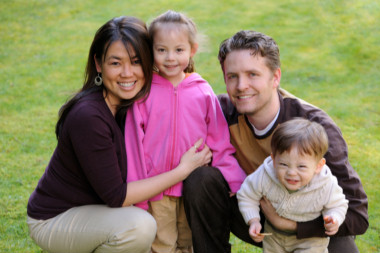 The parents are holding their children in their arms . (ENG ) (ES ) (3371)           | |||||||||||||||||||||||||||||||||||||||||||||||||||||||||||||||||||||||||||||||||||||||||||||||||||||||||||||||||||||||||||||
Los dátiles chinos son un alimento saludable.  Chinese dates are a healthy food . (ENG ) (ES ) (3432)           | |||||||||||||||||||||||||||||||||||||||||||||||||||||||||||||||||||||||||||||||||||||||||||||||||||||||||||||||||||||||||||||
Lamentablemente, el niño murió.  Sadly , the child died . (ENG ) (ES ) (3444)           | |||||||||||||||||||||||||||||||||||||||||||||||||||||||||||||||||||||||||||||||||||||||||||||||||||||||||||||||||||||||||||||
Los pollos son un tipo de aves de corral.  Chickens are a type of poultry . (ENG ) (ES ) (3445)           | |||||||||||||||||||||||||||||||||||||||||||||||||||||||||||||||||||||||||||||||||||||||||||||||||||||||||||||||||||||||||||||
La madre está amamantando a su hijo.  The mother is breastfeeding her child . (ENG ) (ES ) (3462)           | |||||||||||||||||||||||||||||||||||||||||||||||||||||||||||||||||||||||||||||||||||||||||||||||||||||||||||||||||||||||||||||
La máquina está cavando.  The machine is digging . (ENG ) (ES ) (3463)           | |||||||||||||||||||||||||||||||||||||||||||||||||||||||||||||||||||||||||||||||||||||||||||||||||||||||||||||||||||||||||||||
Nu significaba "dinero" en chino antiguo.  Nu meant money in ancient Chinese . (ENG ) (ES ) (3485)           | |||||||||||||||||||||||||||||||||||||||||||||||||||||||||||||||||||||||||||||||||||||||||||||||||||||||||||||||||||||||||||||
El chirrido de los grillos es fuerte y claro.  The crickets ' chirping is loud and clear . (ENG ) (ES ) (3493)           | |||||||||||||||||||||||||||||||||||||||||||||||||||||||||||||||||||||||||||||||||||||||||||||||||||||||||||||||||||||||||||||
El maestro les está enseñando a los niños las historias detrás de los proverbios.  The teacher is teaching the children the stories behind proverbs . (ENG ) (ES ) (3506)           | |||||||||||||||||||||||||||||||||||||||||||||||||||||||||||||||||||||||||||||||||||||||||||||||||||||||||||||||||||||||||||||
China es un gran e impresionante país.  China is a great and impressive country . (ENG ) (ES ) (3509)           | |||||||||||||||||||||||||||||||||||||||||||||||||||||||||||||||||||||||||||||||||||||||||||||||||||||||||||||||||||||||||||||
Ella está agachada en la hierba.  She is crouching in the grass . (ENG ) (ES ) (3525)           | |||||||||||||||||||||||||||||||||||||||||||||||||||||||||||||||||||||||||||||||||||||||||||||||||||||||||||||||||||||||||||||
She takes care of my children . | Ella cuida de mis hijos. | I have known her since she was a child . | La conozco desde que era una niña.
I took the children to school . Llevé a los niños a la escuela.
What do chinese people have for breakfast ? ¿Qué desayunan los chinos?
This work is simple enough for a child to do . Este trabajo es lo suficientemente simple para que lo haga un niño.
She brought up her children to be truthful . Ella crió a sus hijos para que fueran sinceros.
Don't make fun of that child . No te burles de ese niño.
The child is lonesome for its mother . El niño está solo para su madre.
Don't spoil your child . No malcries a tu hijo.
A young child has a small vocabulary . Un niño pequeño tiene un vocabulario pequeño.
My chinese did not pass . Mi chino no pasó.
Children sometimes lack patience . A los niños a veces les falta paciencia.
Even children can read this book . Incluso los niños pueden leer este libro.
The child was hot with fever . El niño estaba caliente con fiebre.
I'll take care of your child tonight . Cuidaré de tu hijo esta noche.
Who likes sachiko ? ¿A quién le gusta Sachiko?
In our park , we have a nice slide for children to play on . En nuestro parque tenemos un bonito tobogán para que jueguen los niños.
We did everything for the welfare of our children . Hicimos todo por el bienestar de nuestros hijos.
There are many doubts to a child . Hay muchas dudas para un niño.
This machine is now out of date . Esta máquina ahora está desactualizada.
He is a student who I am teaching english this year . Él es un estudiante a quien estoy enseñando inglés este año.
Even a little child knows its name . Incluso un niño pequeño sabe su nombre.
She loves her children . Ella ama a sus hijos.
She is devoted to her children . Ella está dedicada a sus hijos.
Small children are very curious . Los niños pequeños son muy curiosos.
Mr brown has four children . El señor Brown tiene cuatro hijos.
I spent two hours watching television last night . Anoche pasé dos horas viendo la televisión.
Even a child can answer it . Hasta un niño puede responder.
I told an amusing story to the children . Les conté una historia divertida a los niños.
We like children . Nos gustan los niños.
Children are playing with toys . Los niños están jugando con juguetes.
Tom got angry at the children . Tom se enojó con los niños.
Even a child can do such a thing . Incluso un niño puede hacer tal cosa.
Children grow up so quickly . Los niños crecen tan rápido.
We kept the children quiet . Mantuvimos a los niños callados.
Even a child can answer the question . Incluso un niño puede responder a la pregunta.
Few children were in the room . Había pocos niños en la habitación.
I don't feel like watching tv tonight . No tengo ganas de ver la televisión esta noche.
Children are not admitted . No se admiten niños.
What is the child up to now ? ¿Qué hace el niño ahora?
He did not like children . No le gustaban los niños.
He was innocent as a child . Era inocente como un niño.
The child flew for his life . El niño voló por su vida.
She seems to have been in poor health in her childhood . Ella parece haber tenido mala salud en su niñez.
She takes care of my children . Ella cuida de mis hijos.
English is studied in china , too . El inglés también se estudia en China.
My children are my treasures . Mis hijos son mis tesoros.
I enjoyed watching soccer last night . Disfruté viendo fútbol anoche.
I have been teaching english these five years . He estado enseñando inglés estos cinco años.
He is nothing but a child . No es más que un niño.
I'm tired of watching television . Estoy cansado de ver la televisión.
Children should keep away from the river . It's dangerous . Los niños deben mantenerse alejados del río. Es peligroso .
Don't wake up the sleeping child . No despiertes al niño dormido.
She had an itch to see her child . Tenía ganas de ver a su hijo.
Young children soon pick up words they hear . Los niños pequeños pronto aprenden las palabras que escuchan.
Even a child can understand it . Hasta un niño puede entenderlo.
A lot of children gathered in the garden . Muchos niños se reunieron en el jardín.
She yelled at the children to be quiet . Gritó a los niños que se callaran.
There are some children playing in the park . Hay unos niños jugando en el parque.
She took care of the children . Ella se hizo cargo de los niños.
He had the old machine fixed . Hizo arreglar la vieja máquina.
Even a child knows right from wrong . Hasta un niño sabe distinguir el bien del mal.
The children were playing at keeping house . Los niños jugaban a cuidar la casa. |